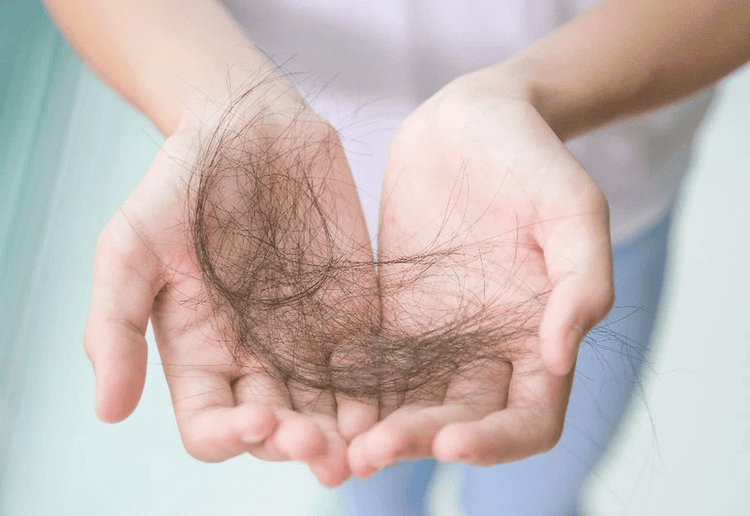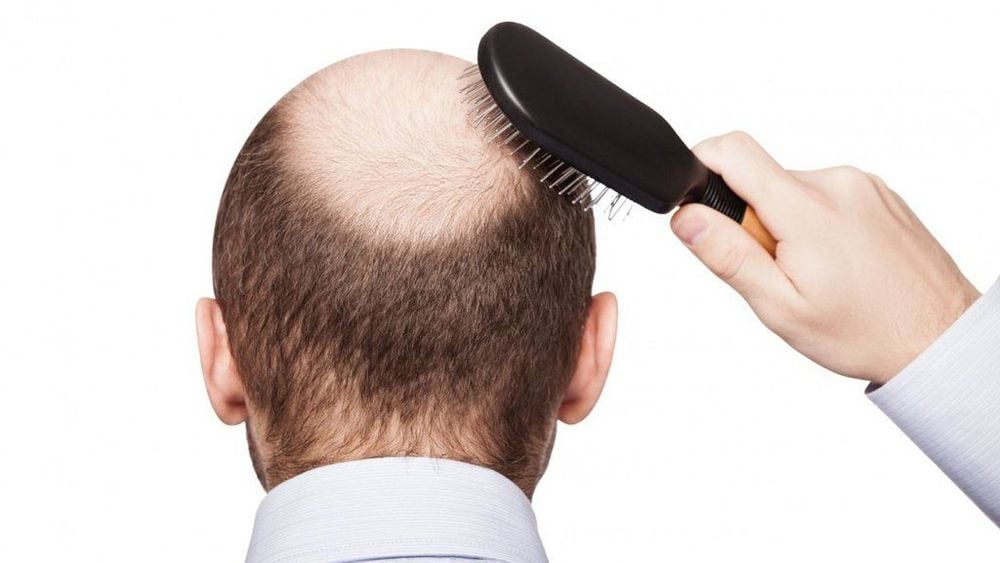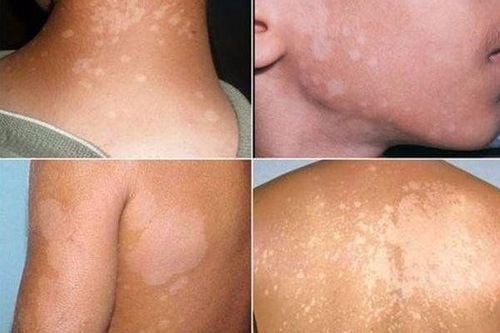This is an automatically translated article.
It's normal to see hair on your comb: we lose hair too. But if a person begins to lose excessively or the hair loss persists, then that is a cause for concern. While hair loss is considered normal, it shouldn't have much of an effect on your scalp's appearance or temperature, as your scalp produces more hair to compensate for the daily amount of hair loss. But when you start to see scalp or bald spots, it means there is a cause for your hair loss.
1. Some common causes of hair loss.
When you think of hair loss, you often think of genetic factors, such as male pattern baldness. Hormones, thyroid problems, and other conditions can all cause hair loss.
So, what are these different causes of hair loss and how do you know if they are the cause of your excessive, persistent hair loss?
1.1 Hormonal changes Women often experience hair loss after childbirth or during menopause.
Hormonal imbalance in women can cause hair loss. In addition to genetic pattern baldness, older men experience hair loss due to a change in their hormonal composition. The reaction of the hair follicles to the hormone dihydrotestosterone (DHT) is what causes hair loss.

Mất cân bằng hóc môn ở phụ nữ là một trong những nguyên nhân gây rụng tóc
1.2 Thyroid disorders Thyroid disorders are considered to be one of the most common hormone related causes. Both too much thyroid hormone (hyperthyroidism) or too little (hypothyroidism) can lead to hair loss. Treating thyroid dysfunction can help reverse hair loss.
1.3 Stress Physical and mental stress can be the cause of hair loss. Surgery, high fever, and blood loss can be stressful enough to lead to a lot of hair loss. Childbirth is also likely to lead to hair loss that lasts for several months after giving birth.
For mental stress, the link is less clearly defined. However, many people report that at times of extreme stress or anxiety they may experience hair loss. And hair loss for other reasons is still likely to lead to stress.
Causes of physical stress are usually temporary, and hair loss will lessen as the body heals.
You can reduce mental stress by making lifestyle and activity changes, such as: Daily exercise Have proper nutrition Meditate and other stress management plans Eliminate stress known causes of mental stress out of life.
1.4 Medication Medicines often come with a long list of side effects, including hair loss. Chemotherapy is the best known cause, but another includes:
Thyroid medications Contraceptives Beta-blockers Anticonvulsants Antidepressants Anticoagulants Anticoagulants These drugs affect users to varying degrees, they may not cause hair loss for some people.
1.5 Nutritional deficiencies Zinc and iron deficiencies are the most common nutrition-related causes of hair loss. But some studies indicate that a lack of intake of the following vitamins and nutrients is also to blame:
Fats Vitamin D Vitamin B-12 Vitamin C Vitamin A Copper Selenium Siotin
1.6 Lupus Lupus is an autoimmune disease that is one of the causes of hair loss. The disease often presents with excessive hair loss in patches and accompanied by lesions on the scalp. Some lupus medications also have the potential to cause hair loss.

Bệnh Lupus thường có biểu hiện rụng tóc quá nhiều và kèm theo các tổn thương trên da đầu
1.7 Other medical conditions Many other medical conditions lead to abnormal baldness, including: kidney failure inflammatory bowel disease (IBD) liver disease Diabetes Dermatological diseases such as psoriasis and dermatitis occur on scalp and hinder, affect hair growth. Infections such as ringworm and folliculitis are responsible for hair loss.
It is understandable that people with hair loss are looking for causes and possible treatments. Research has shown that hair loss reduces self-esteem, self-image problems and increases anxiety. The Journal of the American Academy of Dermatology recommends that when diagnosing hair loss, you should assess the level of anxiety and stress associated with it.
Many non-hereditary causes of hair loss can be successfully treated, stopped and even reversed.
2. Prevention Most of this genetic hair loss (male pattern baldness) cannot be prevented. The tips below can help you avoid avoidable types of hair loss:
Be gentle with your hair. Use a splitter and avoid tugging when combing your hair, especially when it's wet. Using a wide tooth comb when combing your hair helps prevent hair loss. Limit hairstyling methods such as curling irons, hot oils, and dyes. Limit the use of hair extensions such as elastic bands, hair clips, and braids. Ask your doctor about any medications you are taking that can cause hair loss. Protect hair from exposure to the sun and sources of ultraviolet rays. Quit smoking. Talk to your doctor about your concerns and likely causes of hair loss. They will recommend the right treatment for you.
If you have a need for consultation and examination at Vinmec Hospitals under the national health system, please book an appointment on the website (vinmec.com) for the best service.
Please dial HOTLINE for more information or register for an appointment HERE. Download MyVinmec app to make appointments faster and to manage your bookings easily.













